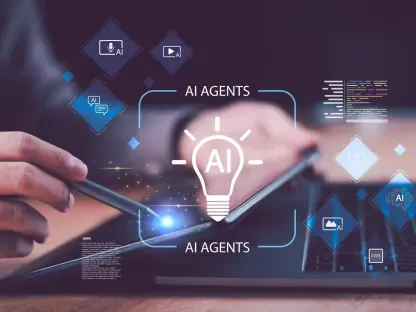Today, we’re thrilled to sit down with Anand Naidu, a seasoned Development expert with extensive knowledge in both frontend and backend technologies. With his deep understanding of coding languages and emerging tech trends, Anand offers invaluable insights into how artificial intelligence is transforming the startup landscape. In this conversation, we dive into the critical role AI plays in driving startup growth, exploring topics like cost reduction, global expansion, innovative tools like multimodal AI, the power of autonomous agents, hyper-personalized customer experiences, and the future of AI-driven decision-making.
How do you see AI shaping the competitive edge for startups in today’s fast-paced market?
AI is a game-changer for startups because it levels the playing field. It allows small teams to punch above their weight by automating repetitive tasks, cutting down operational costs, and providing real-time insights that were once only accessible to big corporations with deep pockets. Startups can now analyze market trends, customer behavior, and even internal workflows at a fraction of the cost, enabling them to pivot quickly and seize opportunities before larger, slower competitors can react. It’s like having a strategic partner that’s always on, helping you stay ahead.
In what ways does AI enable startups to scale globally without breaking the bank?
One of the most exciting aspects of AI for startups is how it breaks down barriers to global markets. Tools like AI-driven translation and voice cloning allow startups to create content and communicate with customers in multiple languages without needing to hire expensive localization teams. For instance, a small EdTech startup can use AI dubbing to make educational videos accessible worldwide, reaching students in their native languages. This kind of scalability used to require massive investment, but now, with affordable AI tools, startups can expand their reach while keeping costs low.
Can you break down what multimodal AI is and why it’s such a big deal for startups?
Multimodal AI refers to systems that can process and generate multiple types of data—think text, images, audio, and video—all at once. This is huge for startups because it opens up creative and practical applications that can transform how they operate. For example, a startup can use a tool like Midjourney to generate stunning visuals for marketing campaigns just by typing a description. Or they can use AI dubbing to adapt content for different cultures. It’s not just about efficiency; it’s about creating engaging, personalized experiences that connect with diverse audiences, whether in customer service, education, or beyond.
How can startups leverage autonomous AI agents to become more proactive in their operations?
Autonomous AI agents are like virtual team members that don’t just follow instructions but can plan and execute tasks on their own. For startups, this means shifting from reacting to problems to anticipating them. These agents can handle everything from customer inquiries to complex IT processes, freeing up human talent to focus on innovation. Imagine a startup using a multi-agent workflow for software development, where one AI handles planning, another tests code, and a third ensures security—all without constant oversight. It’s a massive boost to efficiency and allows startups to tackle bigger projects with limited resources.
What impact is AI having on creating hyper-personalized customer experiences for startups?
AI is revolutionizing how startups connect with customers by enabling hyper-personalization at scale. Through machine learning and data analytics, startups can tailor interactions to individual preferences in real time. A great example is how some brands have used AI to let customers design products or experiences, like a personalized burger contest that went viral and boosted sales. Startups can now use simple tools like dynamic QR codes or chatbots to deliver customized promotions or support, making every customer feel uniquely valued without needing a huge budget.
How does AI enhance decision-making processes for startups compared to traditional approaches?
AI supercharges decision-making by crunching massive datasets and spotting patterns that humans might miss. Unlike traditional methods, which often rely on gut feelings or limited data, AI provides startups with actionable insights in real time. For instance, it can predict inventory needs based on past sales trends or approve loans in banking without human input. Even when decisions aren’t fully automated, AI-generated reports give founders a clearer picture, helping them make informed choices faster and with more confidence.
What are some of the ethical challenges startups face when integrating AI, and how can they address them?
While AI offers incredible benefits, it comes with ethical hurdles that startups can’t ignore. Bias in AI models is a big one—if the data it’s trained on is skewed, the results can be misleading or unfair, like in hiring tools that might overlook qualified candidates. Data privacy is another concern; startups must comply with regulations like GDPR to protect user trust. Then there’s the risk of over-reliance, which can stifle human creativity. The key is to adopt responsible practices—be transparent about how AI is used, set clear ethical guidelines, and always keep human oversight in the loop.
What’s your forecast for the role of AI in shaping the future of startups over the next decade?
I believe we’re just at the beginning of AI’s impact on startups. Over the next decade, I foresee entirely new industries emerging, like AI-driven therapy or farming, powered by startups that are native to this technology. We’ll also see tighter regulations around AI ethics, pushing startups to prioritize transparency. Most importantly, the winners will be those who master AI-human collaboration, designing workflows where AI amplifies human strengths rather than replacing them. As tools become even more accessible, I expect innovation to explode globally, giving startups everywhere the chance to lead in ways we can’t yet imagine.









